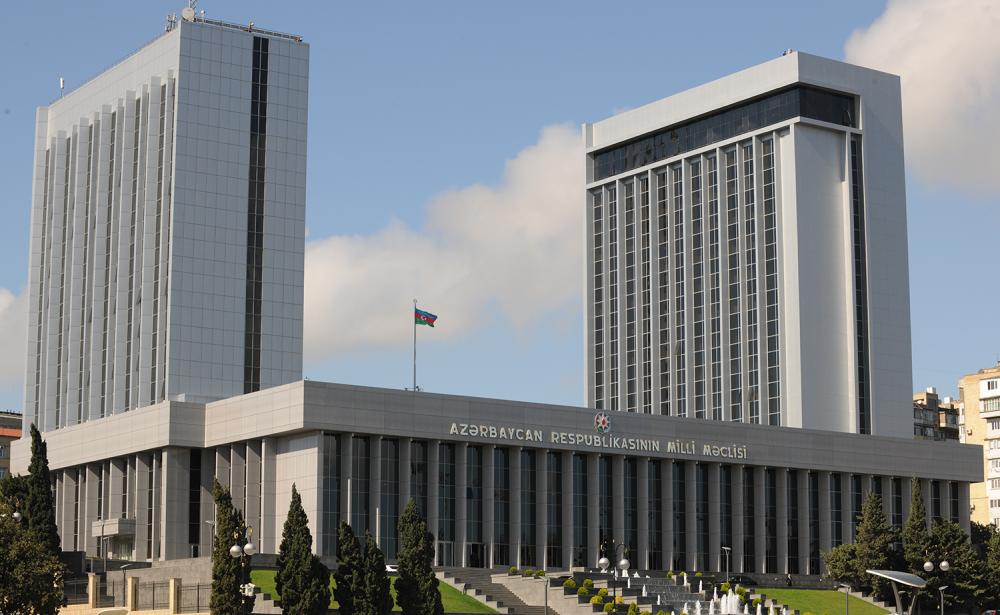The Letter of Protest of the Head of the Working Group on the Azerbaijan-United Kingdom Inter-Parliamentary Relations to the APPG for Armenia in the Parliament of the United Kingdom

Head of the Working Group on the Azerbaijan-United Kingdom Inter-Parliamentary Relations Fariz Ismailzade has sent a letter of protest to the All-Party Parliamentary Group (APPG) for Armenia in the Parliament of the United Kingdom.
The letter states the firm rejection of the baseless accusations aimed at discrediting the trial of the individuals responsible for war crimes, ethnic cleansing and military aggression committed during Armenia’s 30-year occupation. Labelling these individuals as ‘prisoners of war’ and calling for their release disregards the severity of their crimes, the commitment of which is supported by substantial evidence.
During the occupation, Armenia forcibly displaced around one million Azerbaijanis and committed Khojali Genocide as well as urbicide, culturcide and ecocide. Azerbaijani cities and villages were destroyed, cultural and religious heritage was desecrated and severe environmental damage was done. Armenia also planted landmines across the occupied territories, making Azerbaijan one of the most heavily mine-contaminated countries in the world. Those mines continue killing and injuring civilians and delaying the return of the displaced persons and the reconstruction efforts alike.
It is emphasised in the letter that the fate of nearly 4,000 missing Azerbaijanis, including women and children is another dreadful consequence. Armenia refuses to provide information on the mass graves whereas such information could help determine their whereabouts. Additionally, Armenian leaders have long promoted ethnic hatred of the Azerbaijanis. The former Armenian presidents publicly justified ethnic cleansing, with statements endorsing the forced expulsion of Azerbaijanis and the Khojali Genocide. Despite these crimes, no one in Armenia has been held accountable and war criminals continue to be respected.
In contrast, Azerbaijan has been ensuring justice since having restored her territorial integrity. While Azerbaijan did release over 200 Armenians as a humanitarian gesture, those responsible for war crimes are now facing trial in Baku. They are charged under Azerbaijani law for crimes including military aggression, war violations, enforced disappearances, torture, terrorism, etc. The judicial process is transparent, with legal representation ensured, and no complaints of mistreatment have been reported.
That this process would be subjected to criticism is refutation of ignores justice and the implicit support for ethnic cleansing and aggression. True peace can only be achieved through accountability for there can be no lasting peace without justice.
It is further maintained that the on-going legal proceedings shed light on Armenian military aggression and occupation as well as the accountability of its political and military figures involved. Concerns over this process have led to attempts to undermine the trial and interfere in judicial matters. However, rather than engaging in such efforts, constructive cooperation with the legal process would support justice and contribute to lasting regional stability. A sincere commitment to peace would be reflected in acknowledging responsibility and ensuring accountability for those involved in war crimes.
Such a judicial approach serves as an important example to the international community in preventing future conflicts and violations of international law. Turning a blind eye to those violations will not impede the pursuit of justice. A true and fair accountability demands meaningful action and not merely rhetoric.
It is emphasised in the letter that the aforementioned stances of certain Members of the Parliament of the United Kingdom is having an adverse effect on the peace process current between the two states.
We appreciate the UK Government's balanced position regarding the former conflict between Armenia and Azerbaijan. The UK has always supported Azerbaijan's territorial integrity in line with the norms and principles of international law. That said, referring to Garabagh Region of Azerbaijan as ‘Artsakh’ by some members of the UK parliament is not only disrespect to Azerbaijan's territorial integrity, but it also contradicts the UK Government's official position on the former conflict as well as is flagrant violation of international law.
As Azerbaijan is trying to turn the page on the 30-year-long bitter conflict and make progress towards normalisation, it is very important to support this process and encourage Armenia to take the final important steps as soon as possible so that the text of the peace agreement between Armenia and Azerbaijan can finally be signed. This is the only pathway to peace and prosperity in our region.



